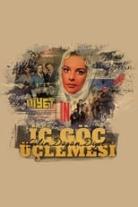
The Migration Trilogy
Migration trilogy has occupied an important place in the history of Turkish Cinema since the moment it was shot. These films were evaluated in various axes such as village-city, east-west, traditional-modern, under the intense discussion environment of the period and the migration wave from villages to cities. The films, which are described as the death of the peasantry as a result of this migration wave, and focus on the struggle for survival of this new population accumulating in the cities; It has opened the door to rich and very different tones on issues such as unionization, squatting and Turkey's capitalistization process.
The Bride (1973)
01 April, 1973
The struggles of a migrant Anatolian family to adapt to and survive in the very different conditions of urban Istanbul. A young woman moves with her husband and small child to her husband's family in Istanbul. Her son becomes ill and the doctor tells her that he will soon die if he doesn't get an operation. The family refuses to help her because they can't see anything wrong with the boy. What happens on a Eid morning becomes a breaking point for the family.
The Wedding (1973)
01 December, 1973
A family migrates to Istanbul from the rural parts of Anatolia, and they bring their traditions with them. The men of the family are giving away the girls of the family in return for a hefty bride-price. Zelha, one of the girls, revolts against this attitude and tries to save her sisters.
Blood Money (1974)
02 January, 1974
Hacer recently joined a factory where Hasan works and brings hope to her life. The two get married. Hacer is worried about the working conditions in the factory; she has a relationship with Hasan after she establishes a relationship with the union. Because of their disagreements, they are driven towards disaster.



